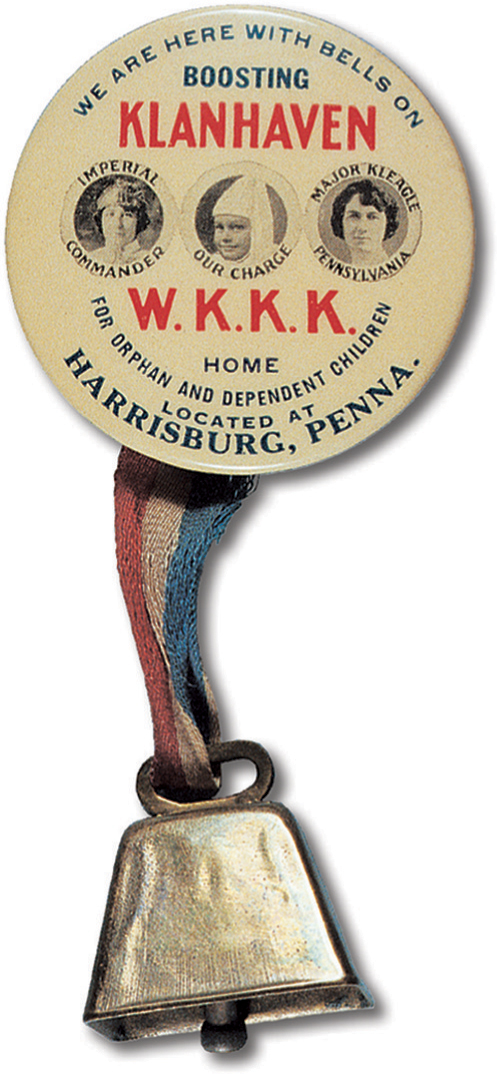The Rebirth of the Ku Klux Klan.
Printed Page 638 Chapter Chronology

The Rebirth of the Ku Klux Klan. The nation's sour antiforeign mood struck a responsive chord in members of the secret society the Ku Klux Klan. The Klan first appeared in the South during Reconstruction to thwart black freedom and expired with the reestablishment of white supremacy (see chapter 16). In 1915, the Klan was reborn at Stone Mountain, Georgia, but when the new Klan extended its targets beyond black Americans, it quickly spread beyond the South. Under a banner proclaiming "100 percent Americanism," the Klan promised to defend family, morality, and traditional American values against the threats posed by blacks, immigrants, radicals, feminists, Catholics, and Jews.
Ku Klux Klan
Secret society that first thwarted black freedom after the Civil War but was reborn in 1915 to fight against perceived threats posed by blacks, immigrants, radicals, feminists, Catholics, and Jews. The new Klan spread well beyond the South in the 1920s.
Building on the frustrations of rural America, the Klan in the 1920s spread throughout the nation, almost controlling Indiana and influencing politics in Illinois, California, Oregon, Texas, Louisiana, Oklahoma, and Kansas. In 1926, Klan imperial wizard Hiram Wesley Evans described the assault of modernity: "One by one all our traditional moral standards went by the boards or were so disregarded that they ceased to be binding," he explained. "The sacredness of our Sabbath, of our homes, of chastity, and finally even of our right to teach our own children in schools [represented] fundamental facts and truth torn away from us."
Eventually, social changes, along with lawless excess, crippled the Klan. Immigration restrictions eased the worry about invading foreigners, and sensational wrongdoing by Klan leaders cost it the support of traditional moralists. Grand Dragon David Stephenson of Indiana, for example, went to jail for the kidnapping and rape of a woman who subsequently committed suicide. Yet the social grievances, economic problems, and religious anxieties of the countryside and small towns remained alive, ready to be ignited.